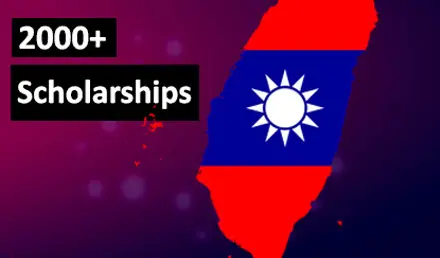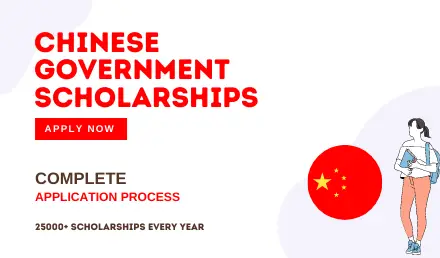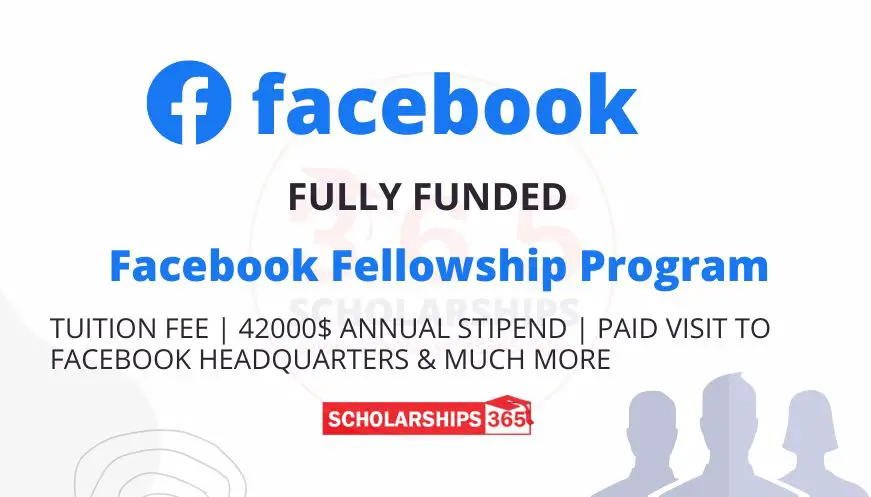
International Fully Funded Facebook Fellowship Program 2023 applications are open now for International students from all over the world. This fully-funded fellowship is designed to encourage and support promising worldwide International doctoral students who are engaged in innovative and relevant research in areas related to computer science.
You can also read about - Taiwan Government Scholarships 2023
Facebook International Fellowship Program 2023 | Fully Funded
The Facebook Fellowship Program 2023 is designed to encourage and support promising International doctoral students from any country who are engaged in innovative and relevant research in areas related to computer science and engineering at an accredited university.
In Facebook Fellowship 2023 Program a lot of students are selected from all over the world and get the benefits for their research work. Students can get Scholarships when he gets enrolled in any university in the world under the Facebook Fellowship Program and Emerging Scholar Awards.
The program is open to students in any year of their Ph.D. study and supports talented students from traditionally underrepresented minority groups.
You can also read about - Knight Hennessy Scholarships 2023 for International Students
Fully Funded Facebook Fellowship Program offered Winners of the Fellowship are entitled to receive two years of tuition and fees paid, a stipend of $42,000 each year, and up to $5,000 in conference travel support.
Facebook offers the International Student Fellowships 2023 Program for International Ph.D. Students for a range of studies in Doctorate (Ph.D.) in multiple Degree courses at the top-ranked universities of the world.
You can also read about - Top 10 Belgium Scholarships for International Students
Host Country: Study in Any Country
Host University: Any University in the World
Fellowship Offered By: Facebook Research Funds
Fellowship Coverage: Fully Funded
Degree Level: Ph.D. Degree Programs in areas related to Computer Sciences
What are the Benefits of Facebook Fellowship Program?
Who wants to do Research in Top World Universities? It is an excellent opportunity for those Ph.D. foreign students who have a dream to do a fellowship in Facebook on Fully Funded Scholarships for Ph.D. Studies in multiple fields of Computer Sciences and Become the Facebook Research Scholar.
Fully Funded International Facebook Fellowships Scholarships 2023 will cover the following all the expenses during study and research in University. Applications are invited for the International Facebook Fellowship Award Program 2023 from all over the world.
Fellowship Award:
- Tuition and fees paid for the academic year (up to two years/four semesters)
- Yearly Stipend of $42,000
- Up to $5,000 in conference travel support
- Paid visit to Facebook headquarters for the annual Fellowship Summit
Research Areas offered by Facebook Fellowships 2023
Fellowships Applications will be accepted from students with research related to one of the following areas:
Applied Statistics:
We would like to support students who are working on novel techniques in statistical modeling and inference. Areas of research include but are not limited to inference in high dimensions, causal inference, graphical models, multi-armed bandits, sparsity and compressed sensing, change detection, forecasting and time series analysis, optimization, regression, classification, clustering, graph partitioning, entity linkage, and entity deduplication. Applications of interest include but are not limited to user modeling, detecting violations, experimentation, surveys, and efficient sampling.
AR/VR Photonics and Optics:
Facebook Research would like to support students that are excited about developing technology in Photonics and Optics that can be applied to VR and AR visual systems. Topics of interest include functional planar optical elements, highly efficient light sources, optical and photonic imaging devices, unique optical materials and structures.
AR/VR Privacy and Ethics:
We would like to support students whose research sits at the intersection of future technologies (augmented reality and virtual reality, specifically) and privacy and/or ethics. We are also considering applicants who have established research programs in AR, VR, or video presence technologies more broadly (either as a field of focus or as a methodological medium). This includes but is not limited to research on the integration of emerging technologies in everyday life and in the workplace.
Blockchain and Cryptocurrency:
We would like to support students working on novel techniques for building decentralized databases of programmable resources. Topics of interest include all areas related to high assurance, scalability and security of the technology, in particular blockchain, smart contracts, financial technologies and payments, transactions, distributed systems, concurrency, and formal methods.
Computational Social Science:
We would like to support students who are working on advancing research in the social sciences with computational approaches. Topics of interest include but are not limited to theoretic and practical models and analysis of social networks, information cascades and influence, causal inference in networks, computer-mediated communication in dyads and groups, norms and trust, political participation, location-aware social networks and mobility, social processes after natural disasters and crises, well-being, social support, and mental health support.
Computer Graphics:
We would like to support students who are working on advancing state-of-the-art computer graphics and efficient real-time rendering for augmented and virtual reality. Topics of interest include but are not limited to applications of machine learning methods, ray tracing and ray casting hardware, physically-based shading, geometry processing, and compression, image, and video compression, perceptual rendering, high-quality avatars, global illumination, scene prefiltering, and rendering complexity reduction.
Computer Vision:
We would like to support students who are working on advancing state-of-the-art computer vision. Topics of interest include, but are not limited to image and video recognition (classification, detection, and segmentation), vision and language (visual question answering and visual dialog), visual reasoning (forward prediction, understanding physics, and understanding affordance), large-scale and weakly supervised learning, and understanding humans (pose estimation and action recognition).
Compute Storage and Efficiency:
We would like to support students who are working on novel techniques for improving the efficiency of large-scale systems such as databases, file systems, caching systems, pub/subsystems. This includes novel exploring techniques to shift computation, memory, and storage with the goal of optimizing power consumption and/or cost.
Distributed Systems:
We would like to support students working on a broad set of topics related to all kinds of distributed systems, including but not limited to fault tolerance, reliability, system management, scale, performance, efficiency, and security.
Economics and Computation:
We support students who are passionate about applied or theoretical work in the areas of game theory, optimization, operations management, and econometrics. Example research topics of particular relevance include ad auction design, mechanism design for social good, applications of combinatorial and convex optimization at large scale, and the intersection of econometrics and machine learning, but we encourage and welcome applications from researchers doing work on other topics in the disciplines above.
Instagram/Facebook App Well-being and Safety:
We would like to support students who are working on understanding how experiences with social technology play a role in the well-being and safety of communities and societies. This includes, but is not limited to, research that will help us understand problematic issues facing our communities, develop better content policies, assess possible interventions to protect our communities, or identify the mechanisms (e.g., social support, social comparison) through which technology usage directly impacts well-being.
Machine Learning:
We would like to support students who are working on advancing the state-of-the-art in machine learning. Topics of interest include but are not limited to reinforcement learning, deep learning, causality, non-convex optimization, multi-task learning, curriculum learning, learning embeddings and metrics, speech recognition, cost-sensitive learning, and structured prediction.
Natural Language Processing:
We would like to support students with topics of interest that include: machine translation, multilingual learning, representation learning, named entity recognition, text classification, semantic parsing, summarization, dialog systems.
Networking and Connectivity:
We would like to support students active in the research and development of scalable, fast, reliable, and efficient network infrastructure across all areas of connectivity, including wired/wireless network domains such as data centers, backbones, peering, mobile core/backhaul, and access; WiFi to mmWave to optical; broadband connectivity for urban, peri-urban and rural society; the whole stack, from chip/interface/system hardware design to low-level firmware to distributed systems; and the whole network lifecycle, from planning/design to provisioning/deployment, to monitoring/troubleshooting/visualization, to control stacks; including applications of machine learning in networking.
Privacy and Data Use:
We would like to support students who are working on understanding privacy and data use, specifically how to make data more transparent to users and give people more control of their data. This includes, but is not limited to, research on transparency in online behavioral advertising.
Programming Languages:
Applications are welcome from students who are interested in the design and implementation of programming languages and related tools. Topics of interest include but are not limited to: type systems, static analysis, optimizing compilation, runtimes, formal specification and verification, and high-level support for features such as concurrency, data privacy, control of side effects, and probabilistic and differentiable programming.
Security/Privacy:
We would like to support students with established proficiency in the field and a passion for solving complex security challenges. Topics of interest include but are not limited to: systems, software, and network security; privacy; cryptography; malware; abuse detection and mitigation; authentication and authorization.
Social and Economic Policy:
We would like to support students who are working on advancing policy-relevant research in social science, policy analysis, and legal analysis fields. Individuals pursuing research using both qualitative and quantitative methods are encouraged to apply. Topics of interest include but are not limited to the online child and adult safety, the relationship between online communities and international security and foreign policy issues, the role of social media and technology in political, economic, social systems, and the potential impacts of information (or misinformation) on health and well-being.
Spoken Language Processing and Audio Classification:
We would like to support students working in speech and audio processing, particularly those advancing the state of the art in human-computer interaction, human-human interaction, and video content understanding. Topics of interest include but are not limited to speech recognition and synthesis, spoken language understanding, dialog systems, auditory scene analysis, acoustic event detection, audio-visual modeling, and sentiment analysis.
Structured Data Stores
We welcome applications from students working on novel techniques for improving the efficiency and reliability of large-scale systems such as databases, key/value stores, file systems, caching systems, pub/subsystems, and security for storage. This includes exploring novel techniques to shift work between CPUs, memory, and storage with the goal of optimizing power consumption, cost, or developer efficiency.
Systems for Machine Learning
We welcome applications from students working on interdisciplinary research to support machine learning at scale. Research topics of interest include but are not limited to, hardware and software techniques to improve machine learning inference and training in the data center or at the edge. Examples of projects include research targeting machine learning hardware specialization, compiler technologies for deep learning platforms, and techniques for distributed training/learning. We are also interested in research focused on workload characterization and performance analysis of real-world machine learning applications
Are you Eligible for Facebook Fellowship Program?
Candidates must fulfill the following criteria to avail of this Fellowship for their study.
- Students from any country Can Apply.
- Applicants must be full-time Ph.D. students currently involved in ongoing research who are enrolled in an accredited university in any country.
- Students work must be related to one or more relevant disciplines (see research areas below)
- Students must be enrolled during the academic year(s) the Fellowship is awarded
Documents Required for Apply:
List of the Required Documents:
- 500-word research summary which clearly identifies the area of focus, importance to the field, and applicability to Facebook of the anticipated research during the award (reference the research areas below)
- Resume or CV, with email, phone, and mailing address, and applicable coursework noted
- Two letters of recommendation. Please provide reference email addresses. One reference must be from an academic advisor
Deadline for Facebook Fellowship Program 2023
The application deadline for Facebook Fellowship Program is September 20, 2022
How to Apply for Facebook Fellowship Program?
Students have to Apply Online for a fellowship and Simple fill out the Application form the following procedure given below from Apply Online Button
,Fully Funded International Fellowships 2020-2021, Facebook Fellowship Program , Emerging Scholar Awards 2020, Fully Funded Internship Programs 2019, 2022, 2023, 2024, 2025, 2026, Fully Funded PhD Scholarships 2020, International doctoral students, Taiwan International Graduate Program (TIGP), Fully Funded International Scholarships for African Students

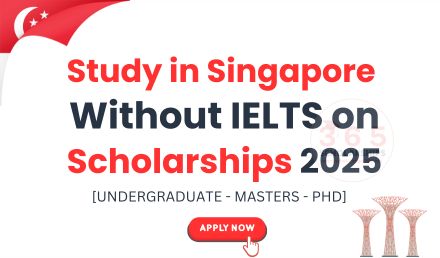
![10 Top Study Abroad Scholarships 2025 [Fully Funded]](https://scholarships365.info/images/images-data/study-abroad-scholarships-for-international-student.jpg)
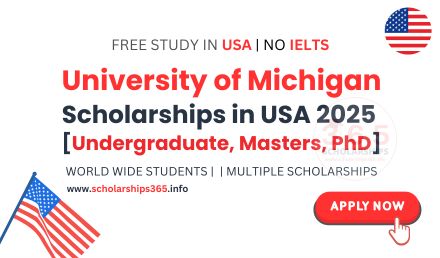
![Rhodes Scholarships 2026 at Oxford University [Fully Funded]](https://scholarships365.info/images/images-data/rhodes-scholarships-2026-oxford-university-fully-funded-scholarship.jpg)

